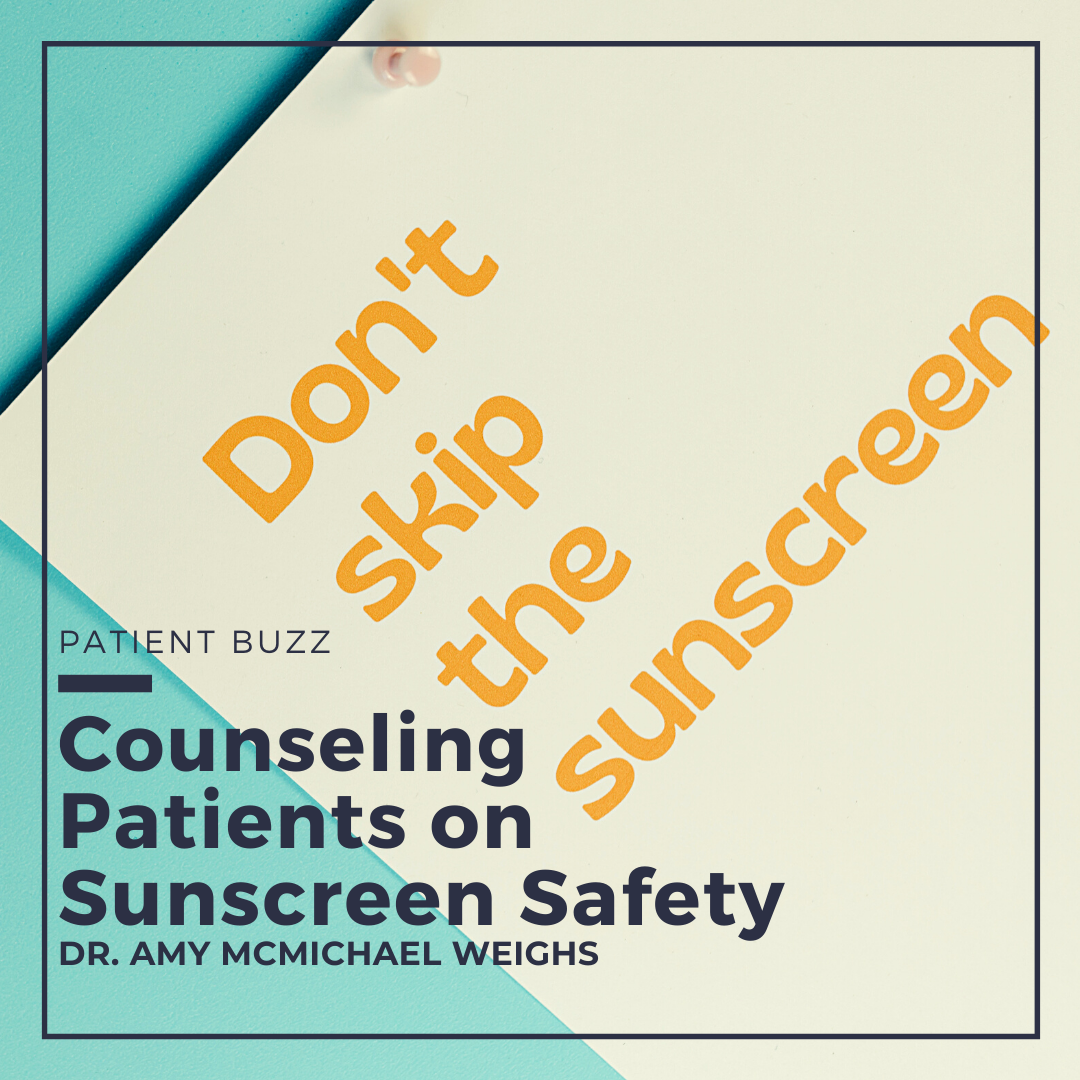Several media outlets have covered benzene contamination in certain sunscreens, and Johnson & Johnson recently announced a recall of certain sunscreens due to benzene contamination.
Should patients be concerned about the safety of the sunscreens they use, and how should dermatologists answer questions about sunscreen safety?
I consulted two expert dermatologists: Dr. Amy McMichael, professor and chair of dermatology at Wake Forest University Health Sciences, and Dr. James Spencer, who is in private practice in St. Petersburg, Fla.
What was your reaction when you learned of the lab study that found the carcinogen benzene in 78 of 300 sunscreens tested? Did the results — and J&J’s subsequent recall — take you by surprise?
Dr. McMichael: I was quite surprised about the findings on benzene in a number of sunscreens, especially those from well-known and trusted companies. I was concerned for my patients because I knew this would potentially be confusing for the lay person to navigate and still stay protected from sun. I think it was a good decision for J&J to recall the affected sunscreens and this is what I would have expected of them.
Dr. Spencer: Clearly this was an accident. The levels detected were very low, and the companies did the honorable thing with a recall.
How concerned are you about the levels of benzene detected in certain sunscreens?
Dr. McMichael: I am very concerned about the levels of benzene found. For my own personal use and that of my patients, I am discussing what sunscreens should be avoided and those that are safe. This has also uncovered a larger problem, and that is how companies are going to monitor for this and prevent sunscreens with benzene from hitting the market. It is concerning that other companies have not been up front about what checks and balances will be put into place to keep the public healthy.
Dr. Spencer: The finding of the commonly used organic solvent benzene at very low levels in some sunscreens was, of course, a great concern, but one that I think can be quickly corrected. The sunscreen industry seems to be acting in good faith as evidenced by the recall undertaken by Johnson & Johnson.
How can consumers find benzene-free sunscreens?
Dr. McMichael: The easiest way for consumers to find benzene-free sunscreens is to Google the original publication listing the sunscreens without measurable amounts of benzene. The other thing they can do it to call their board-certified dermatologist for recommendations.
What steps should dermatologists and their patients do to keep themselves safe while using sunscreen?
Dr. McMichael: Next steps are to stock up on sunscreens without measurable benzene. The other thing that patients can do it to utilize hats and sun protective clothing. Often patients forget about these easy ways to protect themselves.
Dr. Spencer: Independent testing will continue and I think consumers can continue the use of sunscreen.
Do you have any other concerns about the safety of sunscreen, such as the safety of certain ingredients or contamination?
Dr. McMichael: I don’t think we need to be alarmists about potential ingredients or contaminants, but I think we need to demand that personal care companies take heed of this recent issue and test their products internally before selling them to consumers.
Dr. Spencer: Another issue raised with some sunscreen ingredients is their chemical similarity to estrogen. Testing and studies of these ingredients has shown they have no hormonal effects, and again I think consumers can continue the use of sunscreens.
Are you concerned that the study results — and the recent J&J recall — will cause people to not use sunscreen at all and leave themselves unprotected in the sun?
Dr. McMichael: This is certainly a concern, but I think we have to continue to inform our patients and the public about skin cancer risks caused by sun-tanning and sunburning as well as sun exposure over time.
How should dermatologists counsel their patients who have questions about the safety of sunscreens?
Dr. McMichael: We have to be honest with our patients and rely on the data that we have at this time. Many of us are recommending inorganic or physical blocks rather than chemical sunscreens. Inorganic sunscreens without chemical sunscreen added were not found to have benzene, so this is a safe way to go. Many dermatologists prefer physical blocks, since they typically protect better than the chemical sunscreens. Patients may need to learn about application methods like rubbing the sunscreen up in their hands before applying it to the face and neck to keep the physical blocks from looking pasty.
Did you enjoy this Patient Buzz expert commentary? You can find more here.

